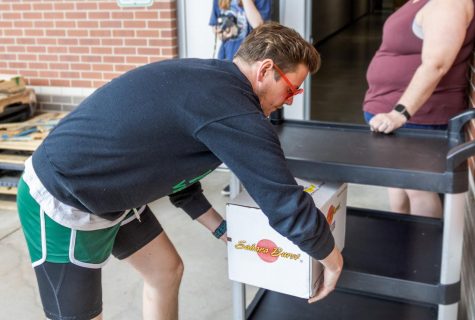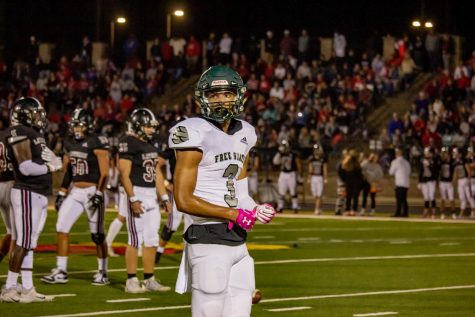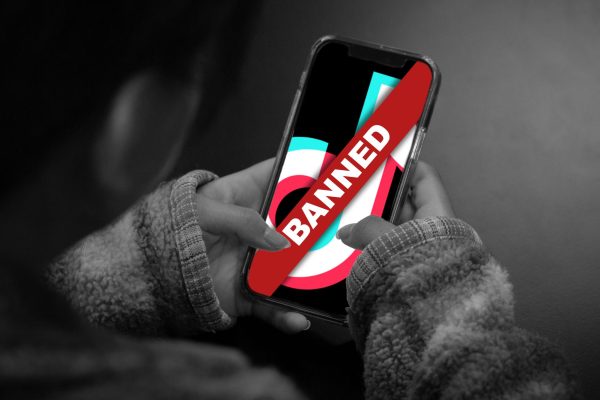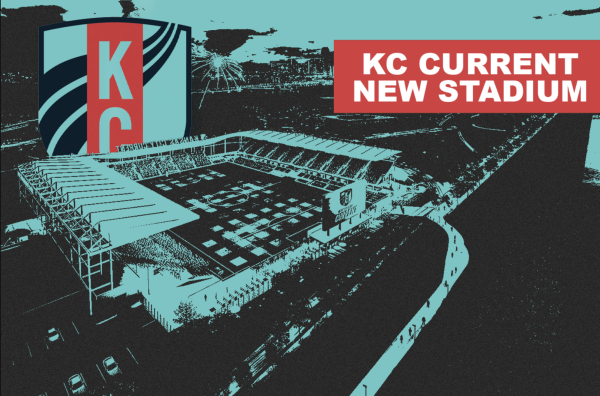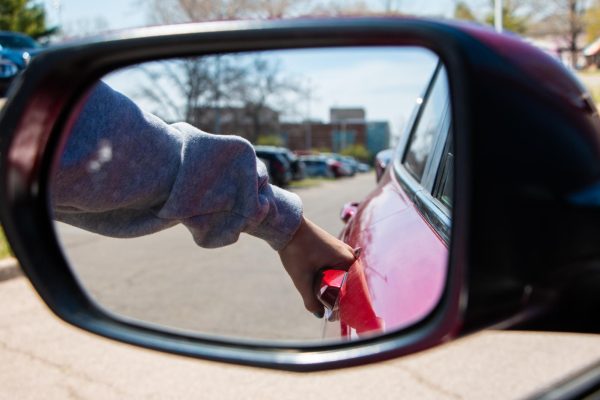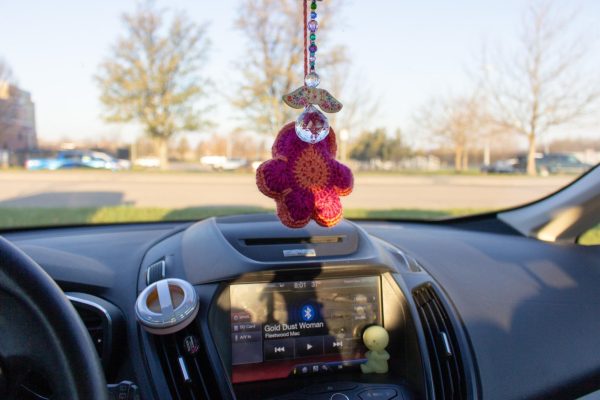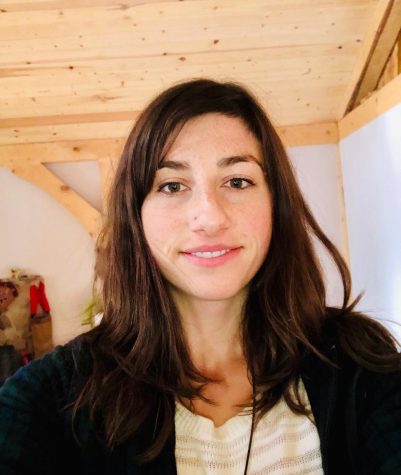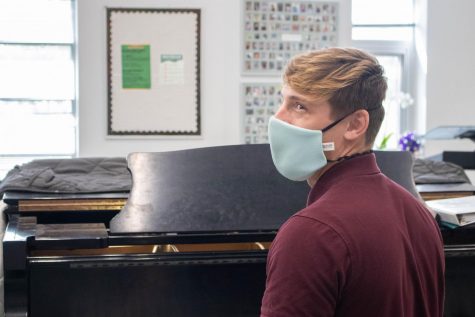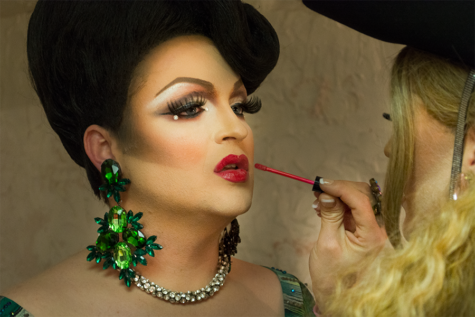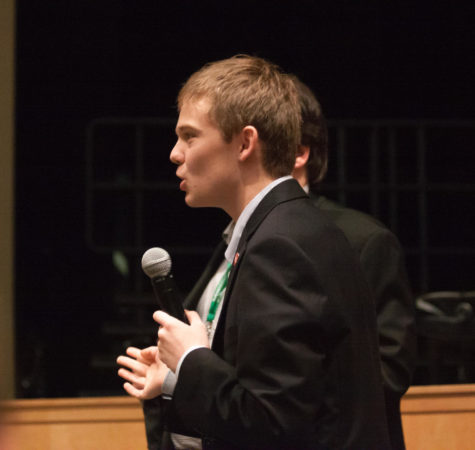Can We Talk
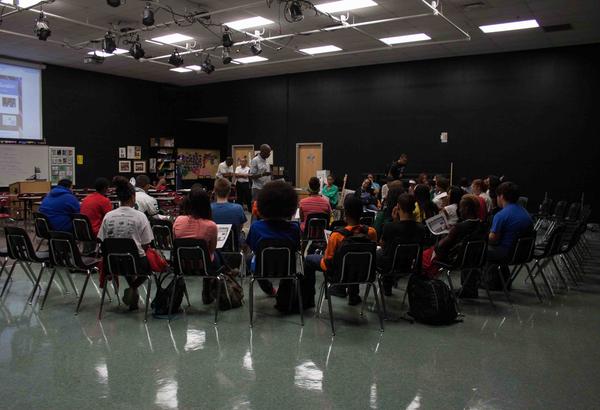
Can We Talk sponsor, Charles Thomas speaks to Can We Talk members.
“Who all has been affected by racism?” Sophomore Garrett Swisher asks the group of 7th graders in the West Middle School auditorium. About 20-25 teachers and students raise their hands. He points out that even if just one hand had been raised, it would indicate that racism is still prevalent today.
On March 26, members of Free State’s and Lawrence High’s Can We Talk clubs sponsored a joint panel discussion to answer question from 7th graders at West Middle School.
Can We Talk is a club that began four years ago at Free State, designed to help high school students handle real life issues including, but not limited to, racial issues. Every late arrival Thursday, the club meets at 8 a.m. in the Black Box Theater.
With over 150 members, Can We Talk is the largest club at Free State. It is open to people of all race, ethnicity, religion and sexuality and has a diverse population.
When it was first started, only male students were allowed because for fear of female students distracting the boys from the topics at hand.
“What we were trying to do was to close the achievement gap,” said Charles Thomas, Can We Talk sponsor. “We figured that we would start with the minority males.”
The club began accepting female members after the community complained about the lack of an equivalent organization for girls, and Thomas hasn’t experienced any problems since.
Club meetings often include panels or step-ins.
Step-ins are when everyone gets in a circle and a question is asked. Anyone who can relate to the question “steps in” while those who don’t stay where they are. Everyone who stepped in is then asked why they stepped in and those who didn’t are asked why they didn’t step in
Panels are usually made up of several students, and then the rest of the group asks them questions pertaining to the topic.
Recently, Can We Talk held panels on interracial dating and what it means to be biracial in America. Step-in topics have ranged from drug and alcohol use to being comfortable with one’s race. Anything and everything is open to discussion in Can We Talk.
“It covers a wide variety of topics that you wouldn’t talk about in a classroom,” Swisher said.
Can We Talk also helps prepare its members for success beyond high school, which can range from teaching them interviewing skills or taking them on college visits.
“[Can We Talk] showed me what I want to do in life and different ways to get to what I want to do,” senior Ariana Tubbs said.
Every year, Can We Talk takes students on college visits and provides them with information about scholarships they can obtain.
This year, they visited Baker University, University of Kansas, Kansas State University and Johnson County Community College. In the past, they have also visited Washburn and Washburn tech.
“Not everyone is geared toward a four year school, so we try to offer other options,” Thomas said.
The college visits provide students with many opportunities to look at potential schools and receive advice on applying.
“I have a chance to look at the schools that I wasn’t interested in, and then they give me a perspective on that,” Tubbs said. “They also give me mentors and guidance. People who have been through the process and can share their story.”
Along with college visits, Can We Talk has a number of other field trips for its members. Those include exchanges with other schools, such as the Schlagel exchange, Brown vs. Board of Education in Topeka, the Jazz Museum and the Negro Baseball Museum.
Tubbs particularly enjoyed the Brown vs. Board of Education field trip because it made her understand what it felt like to be an African American in the 1960s.
“We got to see how it felt because there was this room that we could walk through [like] the Little Rock nine kids that were being tormented as they entered the school, and we got to walk through a hallway, and it played videos of people screaming at you,” Tubbs said.
Can We Talk does more than just take field trips and hold discussions. It provides its members with a chance to learn history beyond just a white man’s perspective.
Members are taught African American history, Native American history and Hispanic American history.
Swisher explains how most history classes deliver a skewed perception of the times.
“…you are pounded with the white perspective the whole time,” Swisher said. “It doesn’t really give you open eyes to how the world actually operates. So, when you come to a group like this, you kind of see what its like to be in a minority in a world like today. It gives you that perspective of what they struggle with and why we don’t really see it.”
Students in Can We Talk earn a social studies credit if they meet the requirements set by Thomas and the district. Some of those include ten article summaries dealing with race/culture issues, a certain number of sessions attended and a community service project.
Can We Talk panels have become a tool for the district to help employees understand how racism affects minority groups.
Initially, Can We Talk did a panel at the district office with USD 497 administrators.
“So, we did this panel, and it went so well that now we’ve been tasked to go out to all the schools to do panels,” Thomas said.
Since then, Can We Talk has teamed up with Lawrence High’s Can We Talk and held panels at Langston Hughes Elementary, Pinckney Elementary and West Middle School.
Can We Talk teaches its members skills to combat racism and become comfortable talking about race.
“If I hear someone saying something that I hear is really ignorant or something that just sounds wrong that has to do with history, I typically inform them, but not to be attacking them,” Tubbs said.
Talking about race can be tricky due to people’s tendency to not want to offend another race. However, Can We Talk teaches its members to speak openly about the subject.
“Normally, a nice white person is cautious, doesn’t want to say anything, but once you get to this group you realize other races aren’t going to judge you because you’re white unless you give them a reason to,” Swisher said.
Swisher also points out nothing said in the club is intended to pressure students to go out and do something, such as date a person who is another race. The club is aimed at educating students on how to be respectful to everyone and how to be open to people of all race, ethnicity, sexuality, etc.


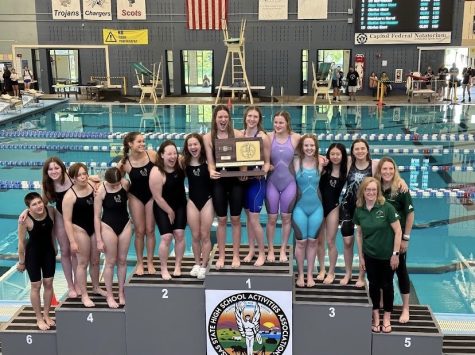
![After receiving advice from her students, orchestra director Judy Erpelding marks her music. Although the director normally makes the artistic decisions, Erpelding will often consult her students and hear their opinions on what sounds good and what they should try out. “[The students] are the heart of the program, not me,” Erpelding said. “I know they will carry that on and I will miss them. Making great music with them, being able to challenge them, taking their inspiration.”](https://www.fsfreepressonline.com/wp-content/uploads/2023/05/Roust_Erpelding_5_11_23-317x475.jpg)
